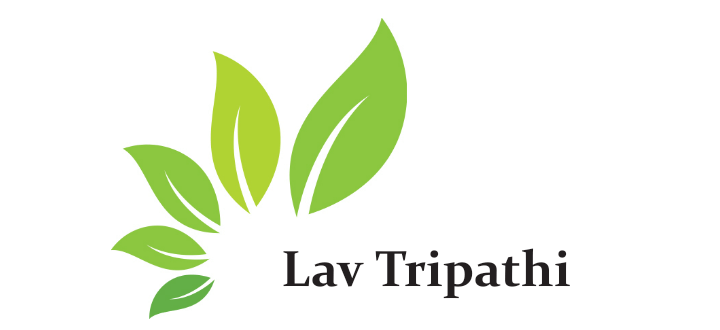The multiple myths and misconceptions about the stock market have caused investors in India to approach the stock market with prudence and reluctance.
These beliefs tend to keep new investors away from the market, causing them to miss out on a fantastic financial opportunity.
If these myths are holding you back from investing in the stock market, consider some Big myths, which are not true
No one can earn in Equity Market
This is a myth. In fact, my father told me that till date he has not seen anyone making a fortune in the equity market.
Let me put it differently that equity market is a zero-sum game. Person A’s loss is Person B’s gain.
In such a situation, the equity market does not make any fortune. We can safely assume that if 100 people are investing in equity market roughly half of them will lose and half will profit.
However this statement is more relevant on the volume front i.e. if 100 shares are traded then the probability of profit or loss is equal.
Whether you are on the winning side or the losing side, it is decided when you enter and exit the market.
In short, it’s all about timing. Believe me, once you understand the rules of the game, no one can stop you from becoming a millionaire.
Although I am still in the learning stage just to share an example. I bought 1000 shares of Dishman Pharma for Rs 190. It touched Rs 210 and because of greed I held on for more profit.
It came down to Rs 198 and I was angry with my decision. The day, when it reached Rs 205, I sold and booked my profit.
The stock closed at around Rs 199. Now, I booked my profit, but assuming that Investor A bought from me for Rs 205, sold for Rs 199 and recorded a loss of Rs 6 per share.
In such a situation, by trading, we keep on transferring profit / loss to other investors. Investor A’s loss is my gain. Its all about timing.
Equity Market is sheer Luck
Again it is a myth that you can profit in the equity market by luck.
If you buy any stock on the basis of stock tips by third party then I completely agree that equity market is sheer luck.
Stock Market Tips is a booming business, Trust me the analysts’ recommendations are based on a fluke and a trend.
The best example is Coal India which I am tracking with Rs 380. In the first run-up, it touched Rs 420 and everyone started giving BUY calls.
Then it came down to Rs 400 and there was silence. After that, it went up to Rs 440 and then again I saw a flood of BUY recommendations.
I sold it during the second rally and now it has fallen to Rs.415.
Though I mentioned that Coal India is an exception, but it could be a pension stock.
It is a very defensive stock and has a very long gestation period.
Recently, I changed my gear and sold this stock to issue capital for more aggressive options.
Long-term Investment in Equity Market
In my opinion, this is a myth. Volatility in equity market is at its peak and will increase in future.
A peculiar trend that is emerging is that the equity market is now more stock-specific rather broad-based.
Even on the day Nifty falls, investors earn money by investing in the right stocks.
In short, if you are an active investor then you invest in equity market otherwise mutual fund is the place for you.
This is because you should capitalize on the opportunities available in the market due to volatility.
Gone are the days when a sneeze from Infosys or RIL created a stir in the market. Nobody cares anymore.
For long term investment in equities, you can invest in mutual funds instead of investing directly in the equity market.
Trading/D-mat Account of a Bank is the BEST
It is a myth that the trading and d-mat account provided by the bank is the best. Investors who trade frequently can understand the pain of high brokerage.
Please understand that the brokerage eats into your profits. Most investors prefer trading and d-mat from their existing bank or full-service broker.
A bank or full-service broker does not add any value. Let’s say you invest 1 lack for trading purpose and rotate it frequently.
Although the amount is small but suppose you buy and sell 1 lakh shares 3 times in a month.
Normally the brokerage is 0.5% of the traded value so if you buy and sell once then the brokerage will be around 1% of 1 lakh i.e. Rs 1000.
If you trade 3 times then the brokerage will be Rs 3000 for 1 month. Assuming an average portfolio of Rs 10 lakhs, the brokerage can be anywhere between Rs 20,000 to Rs 30,000.
This will eat away at your profit in the equity market.
Recently I went to a discount broker. In the same example, 3 buy-sell trades of 1 lakh in a month, brokerage will be Rs 120 i.e. Rs 20 per trade and total 6 trades.
Hence the saving of Rs.880 per lakh with the assumption of repeat trading. All broking houses including discount brokers are registered with SEBI, hence, there is no need to worry about the safety of funds.
Also, many people are not aware that all the d-mat accounts are from any one of the 2 depositories i.e. NSDL or CDSL.
Hence, it does not matter whether the d-mat account is with a bank, a full-service broker or a discount broker. Your d-mat account will be with either NSDL or CDSL.
Equity Market is only for Young People
Again this is a myth. From a financial planning perspective, the equity component of your portfolio should be 100% minus your age.
If I am 35 years old then my equity exposure should be 100 – 35 = 65% of the total portfolio.
Now it is my choice whether I invest in equity market as an active investor or as a passive investor.
Based on the same logic, I convinced my father to invest 35% of his portfolio in the equity market.
👇👇👇
Has anyone become a millionaire by trading in options
👇👇👇
Is intraday trading profitable or it is all about luck
👇👇👇
What is Delta, Gamma, Theta and IV in Option Trading





